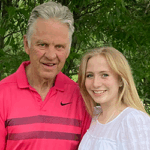Following Parkinson Society BC’s (PSBC) strategic initiative to fund pilot projects that showcased the invaluable role of Allied Healthcare Professionals (AHCPs) in supporting the care of people with Parkinson’s disease, we’re pleased to announce impactful changes in provincial healthcare funding.
These pilot projects, financially backed by PSBC, were designed to underscore the necessity and efficacy of AHCPs in providing critical Parkinson’s care. Recognizing the transformative impact of these pilot projects and AHCPs, both the Interior and Island Health Authorities have now committed to budgeting for the continued funding of the AHCP roles.
Through a multidisciplinary approach, AHCPs have proven instrumental in elevating the quality of life for Parkinson’s patients, simultaneously easing strain on the healthcare system by reducing unnecessary hospital admissions.
In the Central Okanagan, where Parkinsonism has the highest incidence in the province, the Interior Health Authority will continue support for a part-time physiotherapist, speech-language pathologist, and social worker, providing a third of the salary costs. On Vancouver Island, with over 2,650 Parkinson’s patients, Island Health’s commitment will fund one third of a full-time speech-language pathologist.
PSBC also continues to financially support a pilot project with the Vancouver Coastal Health Authority. This project supports the UBC Movement Disorder Clinic with a part-time occupational therapist and a part-time speech-language pathologist. PSBC hopes that following a successful evaluation, the health authority will recognize the substantial benefits of AHCPs and transition the supportive funding from PSBC into their regular budget.
While the transition from pilot to partial funding by the health authorities is a celebratory milestone, PSBC’s mission remains focused on persisting in our efforts to expand access to AHCPs across the province, advocate for necessary policy changes, and ensure comprehensive care.
We express heartfelt thanks to everyone involved in these efforts. Together, we strive towards an increasingly supportive and inclusive landscape for all impacted by Parkinson’s in British Columbia.




